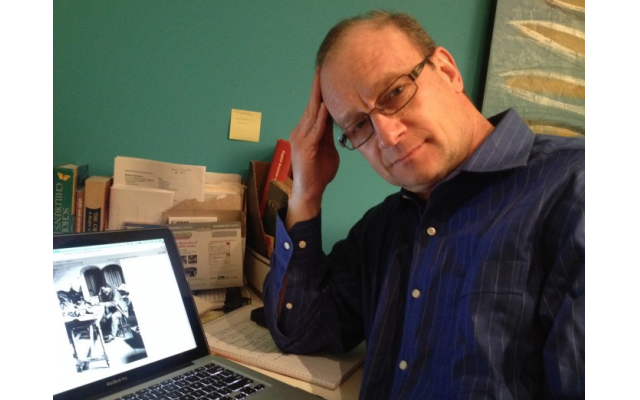The Temple Bombing Echoes Across Six Decades
Sixty years later, an act of terrorism is remembered in Atlanta's Jewish community.
Dave Schechter is a veteran journalist whose career includes writing and producing reports from Israel and elsewhere in the Middle East.
Sixty years ago, in the pre-dawn of Sunday, October 12, 1958, 50 sticks of dynamite detonated at the north entrance of The Temple, the Reform congregation on Peachtree Road.
The blast tore through brick and mortar, through offices and classrooms – where hours later dozens of Jewish children would have been present – and through the psyche of Atlanta’s Jewish community, particularly those old enough to remember the lynching of Leo Frank in 1915.
A group calling itself the “Confederate Underground” claimed responsibility, as it had for the bombings and attempted bombings of synagogues in the Southeast in the months before. These terrorists acted as the self-appointed representatives of a segment of the population uneasy with changes underway in American society.
Eve Hoffman, then 15-years-old, had worn a yellow dress – purchased at Rich’s department store, where her grandfather was an executive – the night before, when she was installed as president of the youth group at the synagogue her great-grandparents had helped found in 1867.
“I felt pretty—really, really pretty,” Hoffman wrote in a poem entitled “The Yellow Dress.”
A few weeks ago, during the Decatur Book Festival, several dozen people sat quietly upstairs in the old courthouse, as Hoffman read that poem, and others from a recently published collection titled “Memory & Complicity.”
“a gaping hole blasted
in the north side of the building
where just hours before we’d been dancing
to Elvis Presley, Perry Como,
and the Kingston Trio.”
The blast shattered not only stained-glass windows, but also the innocence of youth.
Janice Rothschild Blumberg remembers the telephone call that shook her and her husband, Rabbi Jacob Rothschild, from their sleep.
If the bomb was intended as a message to just one person, it was to Rabbi Rothschild, who had become a vocal advocate for civil rights, delivering a message of racial equality from his pulpit.
“For us at the time, “the bomb that healed” applied specifically to healing the long-festering wound of the Leo Frank case. After the bombing, the overwhelming support of the gentile population, from city officials to the likes of those who in 1913 shouted “Kill the Jew” outside the courthouse windows, finally convinced us that we were safe here. Its broader meaning at the time referred to the fact that, thanks to Mayor Hartsfield’s instant, forthright response, people who knew that segregation was wrong were emboldened to say so,” Rothschild Blumberg said.
“It’s still “the bomb that healed,” she said. “I might even go so far as to call it the first event in a series, followed by the Atlanta dinner honoring Martin Luther King for winning the Nobel Peace Prize, that led to the Olympics and other signature happenings which brought Atlanta to its current prominence.”
Five men were charged in the bombing. The trial of the first defendant ended in a hung jury, and then an acquittal. The other four were never tried.
Sixty years later, the echoes of The Temple bombing reach us at a time when a segment of the population is expressing unease about America’s changing demographics.
A subset of these people feel emboldened to vent their hostilities in public. Disturbing images – of marchers carrying symbols of oppression from the last century and the century before that, and of chanted threats that seem to change little with time – shock and sadden those who strive to improve relations between people of different races, religions and ethnicities.
If those who bombed The Temple thought that 50 sticks of dynamite would deter the growth of Atlanta’s Jewish community or deter Jews from supporting the civil rights movement, time has proven them wrong.
The Jewish community of Atlanta, some 14,000 in 1958, is today nearly 10 times that number.
The messages preached today, from the pulpit of The Temple and from pulpits at congregations throughout metropolitan Atlanta, speak of the values of equality and diversity and inclusion.
The echoes of The Temple bombing reach us as a reminder that change, however inexorable, is not always universally accepted and often is not achieved without struggle.




comments